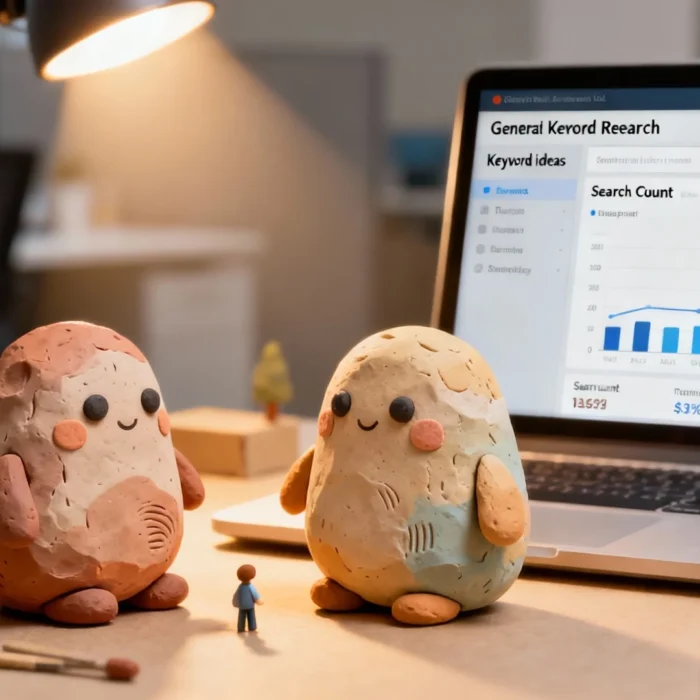For any business owner, simply launching a website and hoping it performs in Google search is no longer enough. If your site isn’t indexed by Google, it won’t appear in search results—no matter how beautiful it looks or how much effort you’ve put into your products or services.
At Bath Marketing Consultancy, we work with business owners across the West of England who are investing in their digital footprint and want their website to work—not just exist. So, how do you resolve indexing issues and get your website indexed by Google and actually performing organically?
Here are our 5 top tips—backed by experience and SEO know-how.
Submit Your Website to Google Search Console
Google Search Console is a free tool provided by Google, and it’s essential for ensuring your site is crawlable and indexable. If you haven’t verified your website and submitted your sitemap, you’re making Google’s job harder—and your own visibility weaker.
A sitemap acts like a contents page for your site. It tells Google which pages you have and helps it understand the site structure. Once submitted, Google can start crawling your site and potentially indexing it in search results.
Tip from BMC: Ensure your sitemap is kept up to date and only includes pages you want to be indexed. Technical knowledge helps here—especially when dealing with multiple languages, redirects or subdomains.
Optimise Your On-Page Content for Relevance and Quality
Google doesn’t just want to crawl your site—it wants to understand what your pages are about. That means content needs to be original, relevant, and structured around keywords and phrases people actually search for.
Meta titles, meta descriptions, headers (H1s, H2s, etc.), and body copy should all work together to signal a clear theme to search engines. But it’s not just about inserting keywords—it’s about creating quality content that meets search intent.
Tip from BMC: Keyword strategy isn’t guesswork. Our SEO process involves research, competitor analysis and intent-matching to make your content not just visible, but clickable.
Secure Strong, Relevant Backlinks
Google sees backlinks as a vote of confidence. If reputable websites are linking to your site, it suggests your content is trustworthy and valuable. But not all backlinks are created equal.
One high-quality, relevant backlink is worth more than dozens of low-quality ones. Think industry blogs, directories, partners, suppliers, or publications in your sector.
Tip from BMC: We help businesses build a strategic link-building plan tailored to their industry, ensuring each link actually improves trust and performance—not just volume.
Make Sure Your Website is Technically Sound
It’s easy to overlook the technical foundation of a website—but Google doesn’t. Slow loading times, broken links, duplicate content, non-mobile-friendly pages, or poor URL structures can all prevent Google from indexing your site effectively.
Core Web Vitals (page speed, responsiveness, visual stability) are now part of Google’s ranking signals. That means your site needs to function well and deliver a good user experience.
Tip from BMC: We run regular audits to uncover technical issues that could be harming your visibility—most of which require a developer or experienced SEO consultant to resolve correctly.
Consistently Publish Fresh, High-Value Content
Google loves freshness. Regularly adding quality blog posts, case studies, articles, or updated content signals that your site is active and evolving. This gives Google more reason to crawl and index your site frequently—and provides more entry points for potential customers.
A stagnant site can quickly fall behind competitors who are actively investing in content.
Tip from BMC: Not sure what content to create or how to align it with search trends? We provide full content strategies as part of ongoing SEO consultancy, so your blog becomes a business tool—not just filler.
Why Indexing and Organic Visibility Matter More Than Ever
In a digital-first economy, your website is often the first impression your business makes. But if Google can’t find it—or understand it—you’re effectively invisible.
Here’s what proper indexing unlocks:
- Search Engine Traffic: You show up when users are actively searching for services you provide.
- Qualified Leads: Organic visitors often have higher intent compared to paid or social.
- Sustained ROI: Unlike ads, organic content continues to deliver traffic over time.
- Brand Trust: A visible, well-structured site builds authority and credibility.
Long-Term SEO is Not Optional—It’s Foundational
Search engine optimisation isn’t just about checking boxes to get indexed. It’s about building a search-ready, user-friendly, and conversion-focused website that earns visibility consistently.
At Bath Marketing Consultancy, we treat SEO as a long-term business asset. Whether you’re launching a new website or optimising an existing one, we help build a foundation that performs—and keeps performing.
Frequently Asked Questions (FAQs)
Q1: How long does it take for a website to get indexed by Google?
It can take anywhere from a few days to several weeks. Using Google Search Console and submitting a sitemap speeds up the process.
Q2: How can I tell if my website is indexed?
Simply search in Google using site:yourdomain.com. If pages appear, they’re indexed. Tools like Google Search Console give more accurate reports.
Q3: Does indexing mean my site will rank on page one?
No. Indexing is the first step. Ranking well requires SEO strategies like keyword optimisation, technical health, content quality, and backlinks.
Q4: What are common reasons a site isn’t indexed?
Common reasons include: no sitemap submitted, blocking pages via robots.txt, poor site architecture, thin or duplicate content, or technical errors.
Q5: Can I pay Google to get indexed or rank higher?
No. Google Ads can get you to the top temporarily, but organic indexing and ranking are based on merit—content, quality, and optimisation.
Final Thoughts
Getting your website indexed by Google is just the first step in unlocking organic growth. True performance comes from a combination of technical health, content quality, and strategic consistency.
Search Engine Optimisation is no longer a one-off task or a “cheap fix.” It’s a core part of business development that requires ongoing attention, experience, and strategy.
If your site isn’t being found—or you want to know why it’s underperforming—get in touch with Bath Marketing Consultancy. Our SEO audits and tailored campaigns are designed to help your website become a high-performing asset, not just a digital placeholder.



